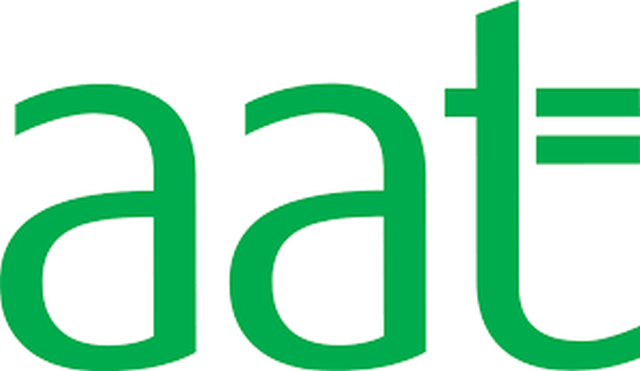While the past week or so has seen more restrictions on civil liberties to UK citizens than at any time in our history, the government has also recognised the major implications the coronavirus (Covid-19) outbreak will have on British businesses. Late last week, the Chancellor set out a package of temporary and targeted measures of support to get through this period of significant disruption.
Here, Brian Palmer, tax policy expert for AAT (Association of Accounting Technicians) talks through the support package and what it will mean for small businesses:
Coronavirus Job Retention Scheme
“Under this new scheme, all UK employers will be able to access support to continue paying part of their employees’ salary for those employees that would otherwise have been laid off during this crisis. All UK businesses are eligible for this, and affected workers will have 80% of their wages reimbursed by HMRC, up to a cap of £2,500 per month.
“To access the scheme, an employer will need to designate affected employees as ‘furloughed workers’ and notify them of this change. HMRC will need information related to the employee through a new portal available on their website.
“It’s important to note that changing the status of employees remains subject to existing employment law.”
Deferring VAT and Income Tax payments
“The Chancellor has promised to support businesses by deferring the requirement to make VAT payments for 3 months (deferral applying in respect of VAT due from 20 March to 30 June 2020). Furthermore, there is some good news for the self-employed with Income Tax payments due in July 2020 under the Self-Assessment system now deferred to January 2021.
“Again, all UK businesses are eligible – but this time the scheme is automatic and there is no need for businesses to apply. This means that businesses do not need to make VAT payments during this period. Taxpayers will also be given until the end of the 2020-21 tax year to pay any liabilities that have accumulated during the deferral period.
“The income tax change is very simple – self-assessment payments payable on 31 July 2020 will be deferred until 31 January 2021. Again, all self-employed people are available and there is automatic access. No penalties or late payment interest will be charged during the deferral period.”
Sick pay
“Legislation has been passed to allow smaller businesses to reclaim Statutory Sickness Pay which is paid for sickness absence due to COVID-19. The government will work with employers over the coming months to set up the repayment mechanism, and this is open to all UK-based businesses with less than 250 employees.
“The number of people employed as of 28 February 2020 will be used as the determining factor – and the refund will cover up to 2 weeks’ SSP per eligible employee. While the scheme is still being developed, employers should act now to maintain records of all staff absences and SSP payments.
“While the employer will not need to provide evidence of GP fit notes, the employee should get an isolation note from NHS 111 online if they get symptoms of Covid-19.”
Support for retail, hospitality and leisure businesses
“The government is to introduce a business rates holiday for retail, hospitality and leisure businesses in England for the 2020/21 business rates year. This is for qualifying businesses based in England only. Properties that will benefit from the relief will be those that are wholly or mainly being used as shops, restaurants, cafes, drinking establishments, cinemas and live music venues or assembly and leisure as hotels, guest & boarding premises and self-catering accommodation.
“Access is again automatic and the relief will be applied to the April 2020 non-domestic rates bill. Check your bill when it comes, however, as local authorities may need to reissue bills to exclude the charge. Further guidance for local authorities is available in the GOV.UK expanded retail discount guidance.
“In addition, the Retail and Hospitality Grant Scheme provides English businesses in the retail, hospitality and leisure sectors with a cash grant of up to £25,000 per property – if their rateable value is between £15,001 and £51,000. Businesses in these sectors with a rateable value of under £15,000 will receive a grant of £10,000. Your local authority will write to you if you are eligible.”
Support for nursery businesses
“The government is also to introduce a business rates holiday for nurseries in England for the 2020 to 2021 tax year. Properties will benefit from the relief if they are occupied by providers on Ofsted’s Early Years Register, or wholly or mainly used for the provision of the Early Years Foundation Stage; and relief will be applied in their next council tax bill.”
Support for businesses that pay little or no business rates
“The government is to provide an additional Small Business Grant Scheme funding for local authorities to support small businesses that already pay little or no business rates because they receive small business rate relief (SBBR), rural rate relief (RRR) and tapered relief. Here, the aim is to provide a one-off grant of £10,000 to eligible businesses (who occupy property) to help meet their ongoing business costs. Again, look out for the letter from your local authority to see if you’re eligible, and direct any enquiries over the provision of grants to them.”
Coronavirus Business Interruption Loan Scheme
“This scheme supports SMEs with access to working capital (including loans, overdrafts, invoice finance and asset finance) of up to £5 million in value and for up to 6 years. The government will pay to cover the first 12 months of interest payments and any lender-levied fees, so smaller businesses will not face upfront costs and will benefit from lower initial repayments.
“Lenders will receive a guarantee of 80% on each loan (subject to a per-lender cap on claims) to give them extra confidence in continuing to provide finance to SMEs at this time. Businesses receiving loans will need to have a turnover of no more than £45 million annually, and will need to meet the other British Business Bank eligibility criteria. If you wish to apply, talk to your bank or one of the 40 accredited finance providers.”
Additional tax support
“HMRC has extended its Time To Pay scheme to help those who do not believe they are in a financial position to maintain their tax liabilities. If taxpayers have missed a tax payment or is worried they might miss their next payment due to COVID-19 they should call HMRC’s dedicated helpline: 0800 0159 559. If worried about future payments, call HMRC nearer the time.”
Insurance
“Businesses that have cover for both pandemics and government-ordered closure should be covered by the latest closures, as the government and insurance industry confirmed on 17 March 2020 that advice to avoid pubs, theatres etc is sufficient to make a claim as long as all other terms and conditions are met. Insurance policies differ significantly, so businesses are encouraged to check the terms and conditions of their specific policy and contact their providers.
“Indeed, standard business interruption insurance policies are dependent on damage to property and will exclude pandemics.”
Off-payroll working (IR35) delay
“In a sign of the times, what would’ve ordinarily been a dramatic turn of events passed without hardly being noticed.
“The planned extension of the off-payroll working rules to large or medium-sized organisations outside the public sector has now been delayed for one year until 6 April 2021. This is only a deferral, and not the cancellation that some were calling for. The rules continue to apply to the public sector.
“Sadly, with many large organisations such as Barclays and Lloyds having already told their contractors that they will not be extending their contracts beyond April 2020, for many it comes too late.”
Help keep news FREE for our readers
Supporting your local community newspaper/online news outlet is crucial now more than ever. If you believe in independent journalism, then consider making a valuable contribution by making a one-time or monthly donation. We operate in rural areas where providing unbiased news can be challenging. Read More About Supporting The West Wales Chronicle


























